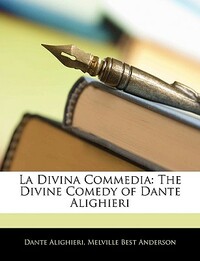Take a photo of a barcode or cover
311 reviews for:
La Divina Commedia: The Divine Comedy of Dante Alighieri
Melville Best Anderson, Dante Alighieri
311 reviews for:
La Divina Commedia: The Divine Comedy of Dante Alighieri
Melville Best Anderson, Dante Alighieri
adventurous
challenging
dark
emotional
hopeful
reflective
sad
tense
slow-paced
Plot or Character Driven:
A mix
Strong character development:
Yes
Loveable characters:
Complicated
Diverse cast of characters:
No
Flaws of characters a main focus:
Yes
challenging
funny
hopeful
medium-paced
Plot or Character Driven:
N/A
Strong character development:
N/A
Loveable characters:
Yes
Diverse cast of characters:
Complicated
Flaws of characters a main focus:
Yes
Here’s a quote - perhaps the most famous quote - from Lanark:
"Glasgow is a magnificent city," said McAlpin. "Why do we hardly ever notice that?"
“Because nobody imagines living here… think of Florence, Paris, London, New York. Nobody visiting them for the first time is a stranger because he's already visited them in paintings, novels, history books and films.”
Although I hadn’t read Inferno prior to this translation, I was no stranger to Dante’s Hell. I had no idea what Dante’s Purgatory looked like, though, so had a good degree of initial intrigue which sustained me for the first half or so.
But it became clear that it was really a retread of Inferno, with penitent souls purging the same sins we’d read about those suffering for. It’s no surprise to me that this is generally considered the weakest third of The Divine Comedy. There‘s also little room for Gray-ism, so it ultimately feels like a tight translation of a less extraordinary work.
"Glasgow is a magnificent city," said McAlpin. "Why do we hardly ever notice that?"
“Because nobody imagines living here… think of Florence, Paris, London, New York. Nobody visiting them for the first time is a stranger because he's already visited them in paintings, novels, history books and films.”
Although I hadn’t read Inferno prior to this translation, I was no stranger to Dante’s Hell. I had no idea what Dante’s Purgatory looked like, though, so had a good degree of initial intrigue which sustained me for the first half or so.
But it became clear that it was really a retread of Inferno, with penitent souls purging the same sins we’d read about those suffering for. It’s no surprise to me that this is generally considered the weakest third of The Divine Comedy. There‘s also little room for Gray-ism, so it ultimately feels like a tight translation of a less extraordinary work.
Nel percorso di lettura epica che ho iniziato, l'inferno di Dante sembra porsi come la legittima prosecuzione delle opere omeriche e dell'Eneide di Virgilio. Probabilmente è proprio il ruolo di guida di questi, che sembra dare continuità e segnare il passaggio di consegne a Dante.
Really gorgeous translation of a strange and often lovely text. I'm glad I switched up this text in my syllabus; I'll be sticking with Bang moving forward.
«Ma s'a conoscer la prima radice
del nostro amor tu hai cotanto affetto,
dirò come colui che piange e dice.
Noi leggiavamo un giorno per diletto
di Lancillotto come amor lo strinse;
soli eravamo e sanza alcun sospetto.
Per più fiate li occhi ci sospinse
quella lettura, e scolorocci il viso;
ma solo un punto fu quel che ci vinse.
Quando leggemmo il disiato riso
esser basciato da cotanto amante,
questi, che mai da me non fia diviso,
la bocca mi basciò tutto tremante.
Galeotto fu 'l libro e chi lo scrisse:
quel giorno più non vi leggemmo avante».
Mentre che l'uno spirto questo disse,
l'altro piangea; sì che di pietade
io venni men così com'io morisse.
E caddi come corpo morto cade.
estratto dal Canto V
del nostro amor tu hai cotanto affetto,
dirò come colui che piange e dice.
Noi leggiavamo un giorno per diletto
di Lancillotto come amor lo strinse;
soli eravamo e sanza alcun sospetto.
Per più fiate li occhi ci sospinse
quella lettura, e scolorocci il viso;
ma solo un punto fu quel che ci vinse.
Quando leggemmo il disiato riso
esser basciato da cotanto amante,
questi, che mai da me non fia diviso,
la bocca mi basciò tutto tremante.
Galeotto fu 'l libro e chi lo scrisse:
quel giorno più non vi leggemmo avante».
Mentre che l'uno spirto questo disse,
l'altro piangea; sì che di pietade
io venni men così com'io morisse.
E caddi come corpo morto cade.
estratto dal Canto V
adventurous
challenging
hopeful
reflective
fast-paced
Plot or Character Driven:
Plot
Strong character development:
Yes
Loveable characters:
Complicated
Diverse cast of characters:
No
Flaws of characters a main focus:
Yes
emotional
inspiring
mysterious
reflective
medium-paced
adventurous
challenging
mysterious
medium-paced
Plot or Character Driven:
A mix
Strong character development:
Yes
Loveable characters:
Complicated
Diverse cast of characters:
Yes
Flaws of characters a main focus:
Yes
“Neither Creator nor His creature, my dear son, was ever without love, whether natural or of the mind."




